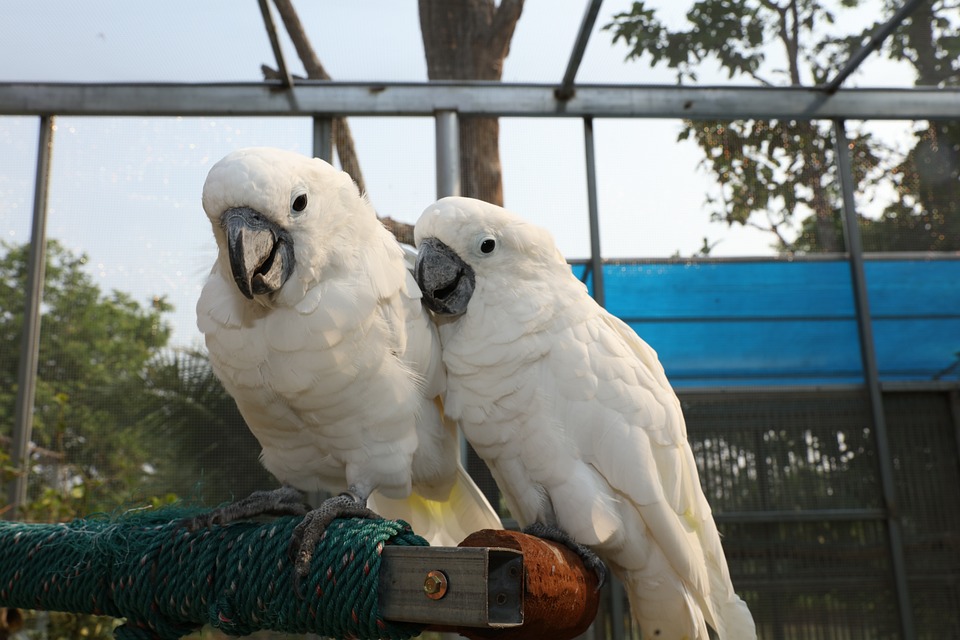Parrots are highly intelligent creatures with remarkable learning abilities. As pet owners, it is important to understand these abilities and provide appropriate mental stimulation to unlock their full potential. This article delves into the fascinating world of parrot behavior and explores how their intelligence can be harnessed through effective training techniques.
Parrot Intelligence: A Remarkable Aptitude
Parrots possess impressive cognitive abilities. They are capable of problem-solving skills, which involve using logic and reasoning to find solutions. For example, some parrots have been known to figure out how to unlock their cage doors or solve complex puzzles.
Object permanence is another cognitive ability that parrots possess. This means they understand that objects continue to exist even when they are out of sight. This understanding allows parrots to navigate their environment and locate objects they desire.
Parrots also have a keen understanding of cause and effect. They can learn that certain actions lead to specific outcomes, allowing them to manipulate their environment to get what they want. This ability is crucial in training parrots to perform specific behaviors.
Communication Skills
Parrots are renowned for their vocal mimicry, which is the ability to imitate sounds and human speech. This skill enables them to learn and repeat words and phrases. Some parrots can even develop a large vocabulary and have meaningful conversations with their owners.
In addition to vocal mimicry, parrots can also understand human language to some extent. They can associate certain words or phrases with specific actions or objects. This understanding allows for effective communication between parrots and their owners.
Non-verbal communication is another skill that parrots possess. They can use body language, such as fluffing their feathers or turning their heads, to convey various emotions or intentions. Understanding these non-verbal cues is important in interpreting a parrot’s behavior and needs.
The Role of Training in Unlocking Parrot Intelligence
Training plays a crucial role in unlocking the intelligence of parrots. Positive reinforcement is an effective training technique that involves rewarding desired behaviors. This can be done through treats, praise, or favorite toys. Reward-based training helps parrots understand what behaviors are desirable and encourages them to repeat those behaviors.
Clicker training is another popular method used to train parrots. It involves using a clicker to mark desired behaviors, followed by a reward. The clicker serves as a clear signal for the parrot, indicating that they have performed the desired behavior correctly.
Target training is a technique that involves teaching a parrot to touch a specific target, such as a stick or a finger, with their beak or feet. This behavior can then be expanded to more complex tasks, such as retrieving objects or performing tricks. Target training helps develop focus and problem-solving skills in parrots.
Environmental enrichment is also essential for stimulating a parrot’s intelligence. Providing stimulating toys and puzzles keeps them mentally engaged. Rotating toys regularly prevents boredom and encourages exploration. Creating foraging opportunities, such as hiding treats or food in different areas of their enclosure, taps into their natural instincts and encourages problem-solving.
Common Challenges in Training Parrots
Training parrots can come with its own set of challenges. Biting and aggression are common issues that parrot owners may face. Understanding the root cause of these behaviors, which can range from fear to territoriality, and implementing behavior modification techniques, such as positive reinforcement and desensitization, can help address and correct these issues.
Excessive vocalizations, including screaming, can also be problematic. Addressing excessive vocalizations involves identifying the underlying cause, such as attention-seeking or boredom, and providing appropriate outlets for vocal behaviors. Teaching alternative vocal behaviors, such as speaking on command or singing, can also help redirect their vocalizations.
Frequently Asked Questions (FAQs)
The article concludes with a section addressing frequently asked questions about parrot intelligence and training. Questions such as whether all parrot species can learn to talk, how to teach a parrot to talk, and whether parrots understand human emotions are answered to provide further insight into these topics.
Conclusion
Parrots possess extraordinary learning abilities that, when nurtured and harnessed through effective training techniques, can lead to a harmonious and enriching relationship between parrot and owner. Providing ongoing mental stimulation and addressing any behavioral challenges with patience and positive reinforcement will help unlock the full potential of these remarkable avian companions. Together, you and your parrot can embark on an incredible journey of knowledge and companionship.









